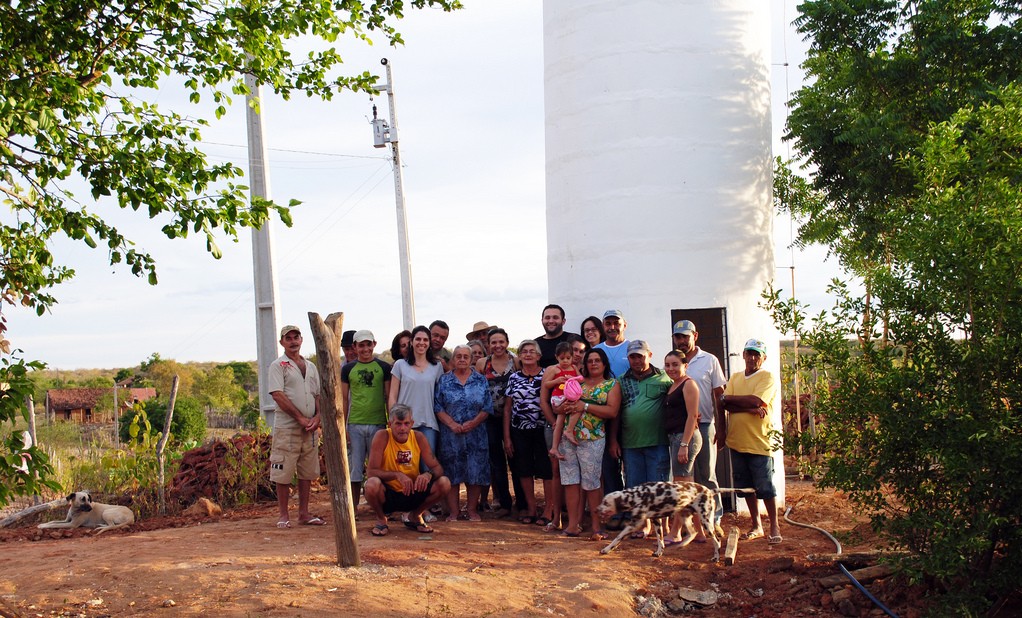To address the household water challenge of rural Ceará, the Columbia Water Center deployed a team of engineers and sociologists to survey rural communities throughout the state. In addition to assessing current and potential water resources in each location, the team engaged stakeholders at different levels, including municipal leaders, union representatives, cooperatives, associations and religious groups among others to assess community attitudes and social structures that could impact water infrastructure development or have implications for maintenance and sustainability. Using this information, CWC designed an integrated plan that aimed for synergy between communities, thereby reducing the costs of providing water infrastructure and improving water use efficiency.
The Municipal Water Plan approach was piloted in Ingá and Pedra Fina, two communities in Milhã; by the summer of 2010, all residents of both communities had access to running water for the first time. Shortly thereafter, the team provided the municipality of Milhã with a comprehensive plan to deliver water to all of its residents.
As the first comprehensive municipal water plan in Brazil, the PAM has sparked the interest of government officials from across Ceará and beyond; state officials are now planning to use the methodology to provide safe, dependable water to every resident.
The PAM is available for download in English and Portuguese:
Municipal Water Plan for Milhã, Ceará in Brazil: Seeking universalization and water sustainability (English version)
Municipal Water Plan for Milhã, Ceará in Brazil: Seeking universalization and water sustainability (Portuguese version)
Check out our other videos on the Columbia Water Center infrastructure projects!

